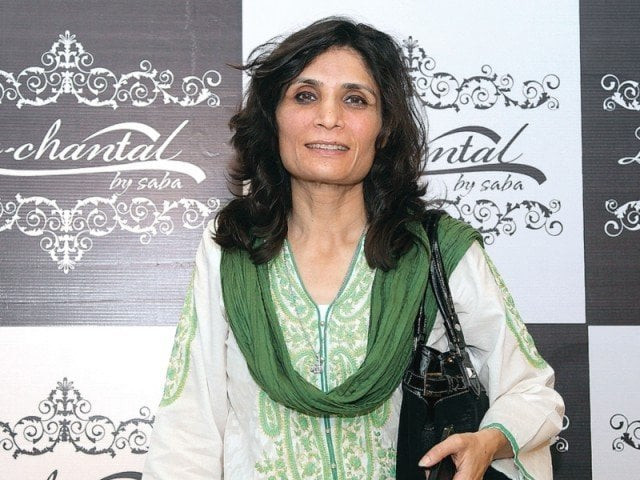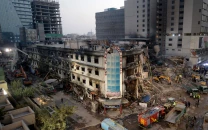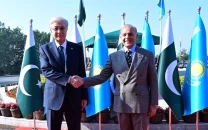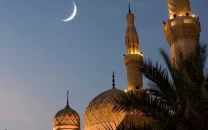Pakistan focusing on trade to foster better diplomatic ties: Andleeb Abbas
Experts say Islamabad has to do more to push its narrative, counter Indian propaganda

Pakistan Tehreek-e-Insaf (PTI) Parliamentary Secretary on Foreign Affairs Andleeb Abbas. PHOTO COURTESY: SAVVY PR & EVENTS
Moreover, they will help overcome the diplomatic turmoil created by Indian propaganda and lobbying around the world.
This was stated by Pakistan Tehreek-e-Insaf (PTI) Parliamentary Secretary on Foreign Affairs Andleeb Abbas while speaking at a seminar on “Foreign Policy of Pakistan in Context of Strategic Coercion”. The seminar had been organized by the Sustainable Development Policy Institute (SDPI).
Dilating on the efforts made by the incumbent government to put Pakistan’s point of view across at the international stage, Abbas said that they were working on economic, religious and cultural diplomacy to make the international community aware of Pakistan’s sacrifices in the war on terror for regional and global peace.
Pakistan summons Indian diplomat, lodges ‘strong protest’ over airspace violation
“Trade and investments get you closer to improved economic ties and diplomatic relations, whereas, aid gets you closer to strategic coercion. Therefore, economic diplomacy was the key focus of the incumbent government,” said Abbas, adding that recent investments announced by Saudi Arabia (KSA) and the United Arab Emirates (UAE) had set the country on a path whereby the country could bring major players onto Pakistan’s side on the diplomatic front.
She added that religious and cultural diplomacy was another key diplomatic tool which could bring the world closer by diminishing differences and misconceptions. In this regard, she pointed to the opening up of the Kartarpur corridor as the part of Islamabad’s diplomacy efforts to foster positive ties with India.
Senior Security Analyst Imtiaz Gul commented on the Pakistan-Afghan relationships and said that both countries have no choice but to live in peace since both share a lot of commonalities in culture, caste and religion.
To improve ties between two countries, he suggested that Afghan refugees should be dealt with on humanitarian grounds rather than considering them as security risks.
He appreciated Prime Minister Imran Khan’s decision of relaxing the visa regime and allowing Afghan refugees to open bank accounts as a positive confidence-building measure which would help reduce tensions between two countries.
Ambassador Tariq Hyder, who was chairing the session, said Pakistan has been hosting some 1.34 million Afghan refugees for nearly 40 years. Furthermore, some 1.5 million irregular Afghans have been provided with identity cards, which had been appreciated by all Afghans. He, however, pointed towards the diminishing international assistance for refugees, claiming that Pakistan receives just two per cent of the support provided to Turkey for hosting Syrian refugees for just the past few years.
SDPI Executive Director Dr Abid Qaiyum Suleri said that Pakistan is not only facing the traditional coercion of ‘Do More’, but economic coercion in the form of IMF conditions and restrictions.
Hybrid warfare, he said, is now one the biggest challenges to Pakistan’s foreign policy. To ward off this challenge, we have to prepare ourselves. He said our common enemy is poverty, hunger, food security, climate change, inequality, unemployment and lack of drinking water and safe sanitation.
The region and especially both nuclear rivals require collective action to fight the common enemy, he added.
Former Ambassador Ayaz Wazir said that we were facing several issues internally, including political instability and economic volatility which weaken our position on the external front.
“Pakistan needs to be stable and strong internally to effectively confront external coercion, otherwise poor domestic situation would not help in achieving foreign policy objectives of the country,” he remarked. He urged the government to immediately resolve internal political issues such as the issues faced by the people of erstwhile federally administered tribal areas (Fata), Khyber-Pakhtunkhwa and Balochistan, which would help strengthen the country’s position.
Senior Defence Analyst General (retired) Amjad Shoaib said that the basic principle of Indian foreign policy was to isolate Pakistan diplomatically, declare it as a terror financing state and suppress the indigenous freedom struggle of the Kashmiri people.
“It is unfortunate that despite losing more than 70,000 innocent lives to terrorism, we are still labelled as a terrorist state,” he lamented.
“We failed to capitalize over evidence of Indian state terrorism in Pakistan in the form of Indian spy Kulbhushan Jadhav, where Pakistan can build its counter-narrative. We must establish our innocence and credibility through a collective counter-narrative,” he added.
Diplomatic effort initiated to blunt Indian aggression: FM Qureshi
Gen Shoaib further complained that our foreign policy was reactive rather than proactive, adding that Pakistan needs to adopt smart and proactive diplomacy in order to improve its image globally.
SDPI Joint Executive Director Dr Vaqar Ahmed said that it was concerning to note that political tensions between India and Pakistan have already started exact a heavy price in economic terms. He said the disappointing decision by the Indian government to erect trade barriers will result in negatively impacting jobs and livelihoods of people associated with the trade of goods on both sides.
Moreover, the closure of airspace in both countries, suspension of already planned flights from abroad and domestic and cancellation of scheduled business events this week will impose significant costs on the economy of both countries.
Adrian Levy, a journalist specialising in foreign affairs and South East Asia, said that Pakistan has failed to present its case to the international community, whereas, India has been successful in propagating its narrative due to the presence of a strong lobby internally and on every front.
Published in The Express Tribune, March 1st, 2019.



















COMMENTS
Comments are moderated and generally will be posted if they are on-topic and not abusive.
For more information, please see our Comments FAQ